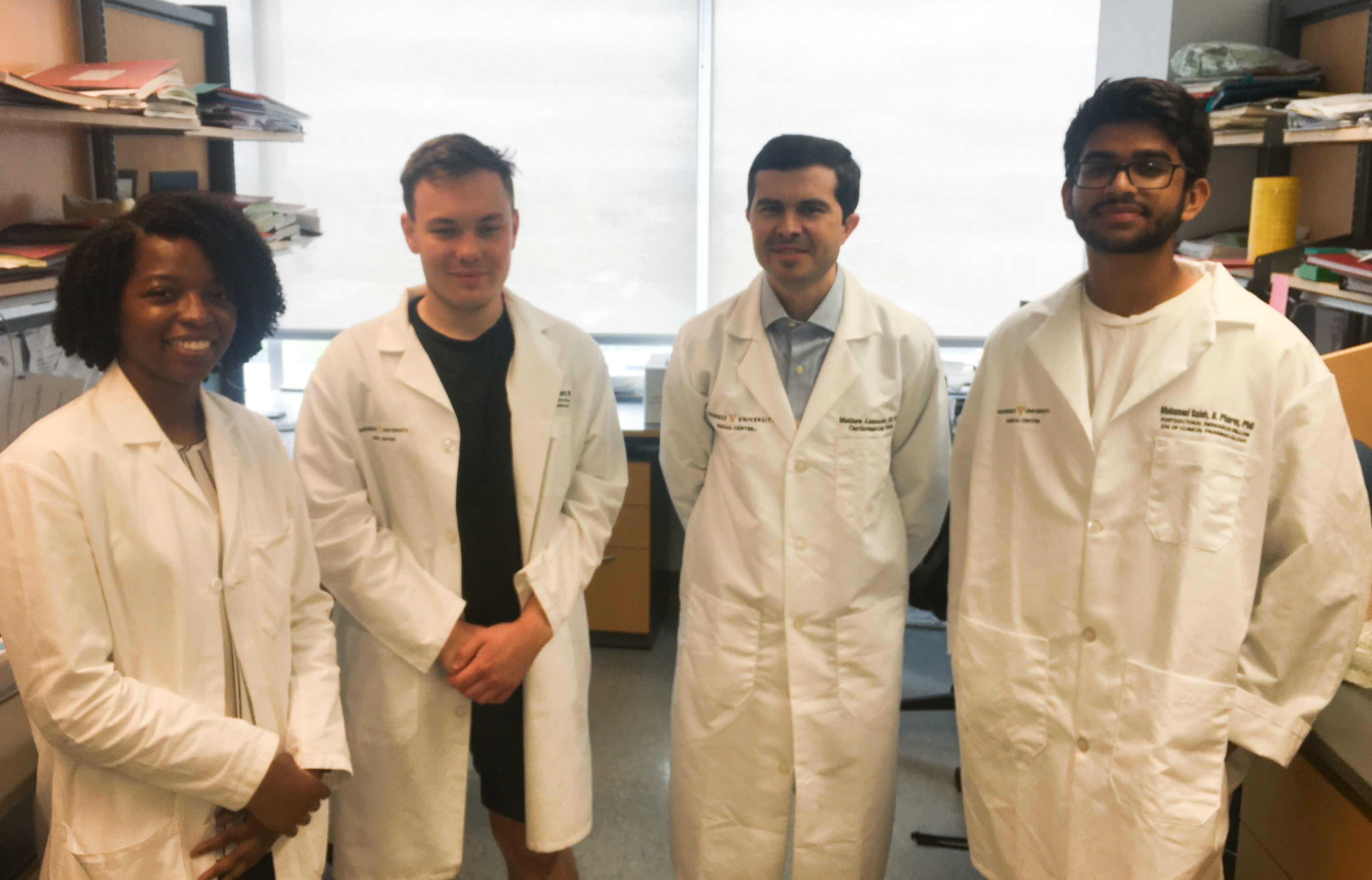Dr. Alexander earned his undergraduate degree from Duke University and his M.D./Ph.D. from the University of Virginia School of Medicine. He's an Assistant Professor of Medicine and Molecular Physiology & Biophysics at Vanderbilt researching the role of adaptive immunity in the pathogenesis of hypertension and associated cardiovascular disease.

Who's your sports team?
Being in Nashville, of course the Titans and Nashville SC. Being from North Carolina and a Duke grad, of course Duke basketball.
How, when, and why did you decide to become a scientist?
I have always wanted to help people with my career, and was interested in medicine for this reason while in high school. In college I was fortunate to have an opportunity to participate in research and really enjoyed it. I realized that I could help people directly through patient care and in broad strokes through research as a physician-scientist. Hence, I entered an MD/PhD program after college and haven’t looked back since.
How long have you been at VU/VUMC and what is your roll?
I came here for clinical training in Internal Medicine and Cardiovascular Medicine along with postdoctoral research as part of the Harrison Society in 2013. I started a position as an Assistant Professor in the Division of Clinical Pharmacology in July 2020.
What does your lab do/study?
We are interested in the role of the immune system in the development of hypertension and related end-organ damage. Specifically, we are interested in identifying mechanisms by which immunoregulatory cells like Tregs play protective roles in limiting blood pressure elevations and target organ damage. The goal is to therapeutically target these immunoregulatory mechanisms to enable new types of therapy for hypertension.

Alexander Lab: Gwendolyn Davis, PhD (Postdoc), Samuel Hank (Research Assistant), Matt Alexander, & Nitin Prabakaran (Undergraduate Student)
How do you foresee these discoveries impacting human health?
We hope to identify ways to specifically target the immune system in the treatment of hypertension, which is the leading risk factor for death and disability worldwide. This approach would provide a new type of therapy for a major unmet public health need, and also has the potential to provide a uniquely specific and durable therapy through co-opting the inherent specificity and memory of immune cells.
What is one topic in your field that you are excited about right now?
There is fascinating emerging evidence that different subsets of regulatory T cells play distinct roles in homeostasis and disease. Functions of these subsets differ based on their tissue localization. We are interested in identifying unique and specific regulatory T cell subsets important in hypertension and related cardiovascular diseases that can be targeted therapeutically in a way that minimizes risks of global immunosuppression.
